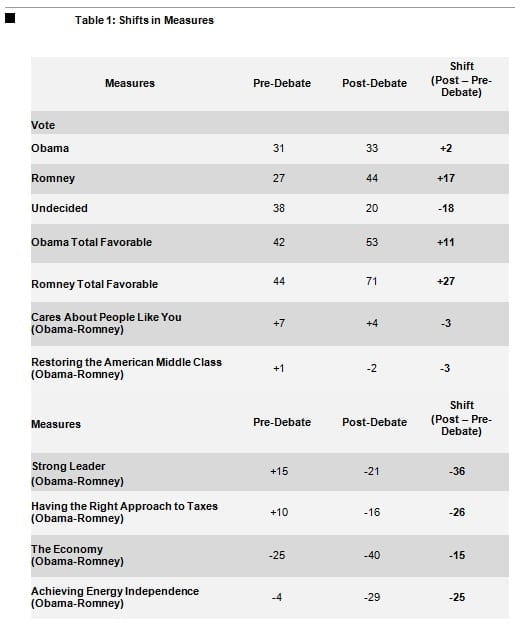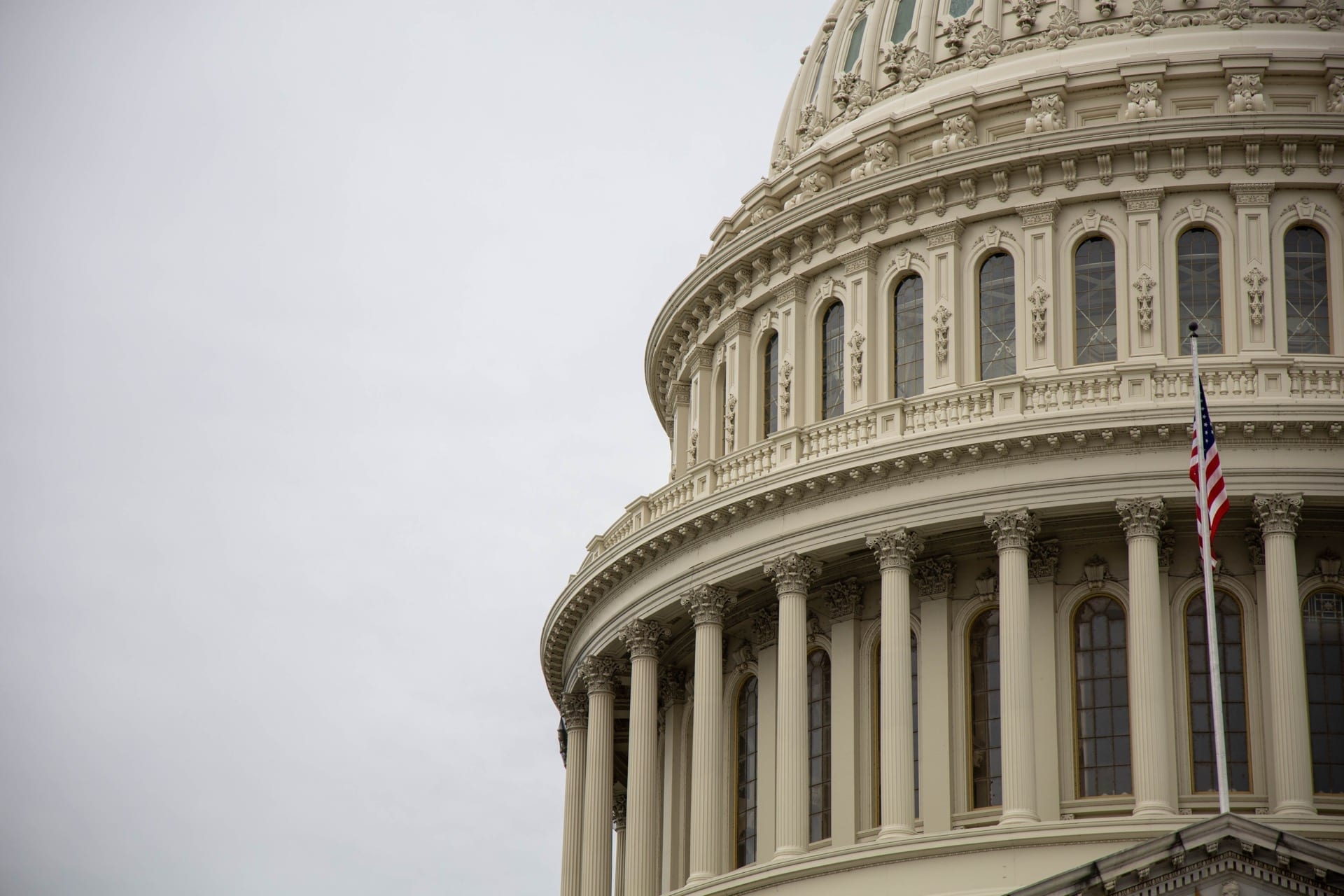Strong Debate Performance Does Not Seem Likely to Change Political Calculus
Working in partnership with the Women’s Voices. Women Vote Action Fund, Democracy Corps seated a group of 45 swing voters in Denver to watch and react to the first Presidential debate. This group, which included 16 unmarried women, is part of a larger research effort to take a hard look at these critical voters, exploring their role and participation in the 2012 elections.
Overall, the dial testing and follow-up discussions showed Mitt Romney performing well, improving his personal appeal and a number of important attributes. Obama also impressed the group, but not to the same degree as Romney. However, the research does not suggest that Romney fundamentally changed the political calculus in this election. For example, while Romney picked up some voters, he mostly consolidated undecided voters who leaned Republican—the former McCain voters who had not yet warmed up to the Republican nominee. He did not cut into Obama’s weak support among voters in this group.
It is important to recognize that while we recruited swing voters, most of the “swing voters” in the group reflected the remaining swing voters in much of the country. In this group, there were nearly twice as many Republican-leaning participants as Democratic-leaning participants—22 percent Democratic-leaning to 42 percent Republican-leaning. These participants voted for McCain by a 9-point margin in 2008.
Romney improved his personal appeal score in the group by 27 points and did particularly well moving the needle on “taxes,” the “economy” and being a “strong leader.” In the dials, he impressed voters with his five-point economic plan, his promotion of small businesses, and newly-found commitment to bi-partisanship.
As one participant said in a post-debate focus group, “Romney cleared up a few things for me that I’d seen in commercials and hearsay. It makes a lot more sense now. The debate helped say he does know what is going on.”
The President also had his moments. Obama’s best points in the dials came when he referred to the “Clinton model” and the former President’s job growth coupled with tax fairness. Among unmarried women in particular, Obama’s promotion of community colleges and defense of Obamacare found traction in the dials. As one unmarried woman put it, “I like the whole community college aspect about Obama. He has my best interests in heart.”
In the end, though, this debate did not emerge as the game-changer the Romney campaign needed. While his ballot support grew in pre- and post-debate testing, so did Obama’s. Moreover, all of Romney’s gains came from Republican-leaning undecided voters. He did not move a single voter away from Obama.
Only 42 percent of these voters concluded Romney won the debate, no larger than the Republican lean of this small sample. Nearly four in ten voters (38 percent) say neither candidate won the debate.

Romney’s greatest tactical achievement was winning the engagement over taxes, an issue where he came into the group at a disadvantage, but especially won over participants talking about small businesses.
But even while making significant gains over Obama on the economy, Romney failed to fundamentally advance on the core issue of this campaign: restoring the middle class. Even in a group where these voters believe Romney won the debate, Romney only managed a net 3-point shift on “restoring the American class.” Romney posted a similarly unimpressive shift on “cares about people like you.” The latter is particularly critical, especially given the recent discussion around the “47 percent.” This debate did not seem to erase the biggest gaffe of the campaign so far. As one woman said, the “47 percent [comment] was really insensitive. I don’t know what he was thinking or feeling. If this is the kind of stuff he says when he doesn’t think people are seeing or listening…”
The debate also represents an important missed opportunity for Obama on the issue of women. Obama comes to this issue with huge advantages, both in this focus group and in national surveys. But he failed to expand his lead. Among unmarried women, Obama started the debate with 50-point advantage – an advantage that did not change during the course of the debate. As one unmarried woman said, “they didn’t touch on women’s issues at all. That’s a big thing for me.”


